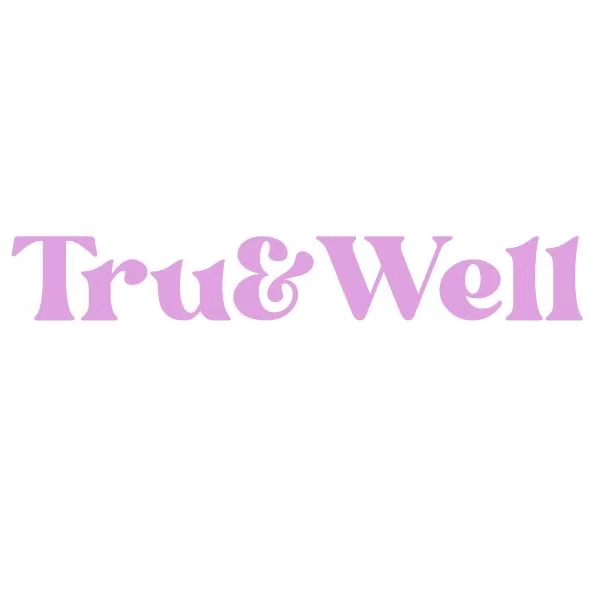Discover the ancient healing art of Reiki and unlock the power within with these must-read books. Reiki, a Japanese technique for stress reduction and relaxation, has gained immense popularity in recent years due to its ability to enhance spiritual growth and promote overall well-being.
Whether you’re a beginner looking to delve into the world of Reiki or a seasoned practitioner who is already practicing Reiki healing, these handpicked books will guide you on your journey.
From understanding the history and principles of Reiki to learning practical techniques and exploring advanced concepts, these books offer a comprehensive and insightful exploration of this transformative practice.
Get ready to embark on a soulful adventure as you dive into these captivating pages filled with wisdom, guidance, and the tools you need to tap into the profound healing energy of Reiki. Let these books be your companions as you embrace the power within and unlock the limitless potential that lies within you.
The Benefits of Practicing Reiki
Reiki is not just a healing technique; it is a way of life that brings numerous benefits to those who practice it. One of the primary benefits of Reiki is stress reduction. Reiki helps to calm the mind, relax the body, and release tension, allowing practitioners to experience a profound sense of peace and tranquility. It may even help you feel more grounded.
Another significant benefit of Reiki is its ability to promote physical healing. By channeling the universal life force energy, Reiki practitioners can accelerate the body’s natural healing process. It can be used to alleviate pain, reduce inflammation, and support the body’s immune system. Reiki also helps to balance the body’s energy centers, known as chakras, promoting overall wellness and vitality.
Apart from physical healing and pain management, Reiki is also known for its emotional and mental benefits. It can help to release emotional blockages, past traumas, and negative thought patterns. Reiki promotes a sense of emotional well-being, allowing individuals to experience greater clarity, peace, and joy in their lives. It can also enhance intuition and spiritual growth, opening doors to deeper levels of self-discovery and self-awareness.
Practicing Reiki is a valuable tool for stress reduction, physical healing, emotional well-being, and spiritual growth. By incorporating Reiki into your life, you can experience a profound transformation and tap into the limitless potential that lies within you.
Understanding the History of Reiki Before Reading the Best Books About Reiki
To truly appreciate the depth and power of Reiki, it is essential to understand its rich history. Reiki was developed by Mikao Usui, a Japanese Buddhist monk, in the early 20th century. Usui embarked on a spiritual quest to discover the ancient healing methods of the Buddha and Jesus Christ. After years of meditation and study, he experienced a profound spiritual awakening on Mount Kurama, which led to the birth of Reiki.
The word “Reiki” is derived from two Japanese characters: “Rei,” meaning universal or spiritual, and “Ki,” meaning life force energy. Usui believed that this universal life force energy flows through all living beings and has the power to heal and restore balance. He developed a system of hand positions and symbols that enable practitioners to channel this energy and direct it to specific areas of the body.
Over the years, Reiki has evolved and branched into different lineages, each with its unique teachings and practices. However, at the core of all Reiki lineages is the belief in the healing power of universal life force energy and the importance of self-care and self-transformation.
The Principles and Techniques of Reiki
Central to the practice of Reiki is the Five Reiki Principles, also known as the Five Reiki Precepts or the Five Reiki Ideals. These principles serve as a guide for living a balanced and harmonious life and are recited daily by Reiki practitioners. They are as follows:
1. Just for today, I will not be angry.
2. Just for today, I will not worry.
3. Just for today, I will be grateful.
4. Just for today, I will do my work honestly.
5. Just for today, I will be kind to every living thing.
These principles encourage individuals to cultivate positive qualities such as compassion, gratitude, and mindfulness in their daily lives. By embodying these principles, practitioners can create a harmonious and loving environment for themselves and those around them.
Reiki also involves various techniques and hand positions that allow reiki healers to channel and direct the healing energy. These techniques include scanning the body for energy imbalances, using hand positions to channel energy to specific areas, and performing distant healing to send Reiki energy to individuals who are not physically present.
Reiki can be practiced on oneself or others, making it a versatile and accessible healing modality. It is a non-invasive and gentle practice that can be easily integrated into daily life to promote well-being and self-care.
Exploring the Different Reiki Lineages
As mentioned earlier, Reiki has branched into different lineages, each with its unique teachings and practices. While the core principles and techniques remain the same, the approach and emphasis may vary.
One of the most well-known Reiki lineages is the Usui System of Reiki, which traces its roots back to Mikao Usui himself. This lineage emphasizes the traditional teachings and practices of Usui and is widely practiced around the world. It focuses on self-healing, personal growth, and spiritual development.
Another popular lineage is the Usui/Tibetan Reiki, which incorporates elements of Tibetan Buddhism into the practice. This lineage places a greater emphasis on using symbols and mantras to enhance the Reiki energy and facilitate healing.
Other Reiki lineages include Karuna Reiki, which focuses on compassion and healing deep emotional wounds, and Holy Fire Reiki, which emphasizes the transformative power of divine love. Each lineage offers a unique perspective and approach to Reiki, allowing practitioners to explore different aspects of this healing art.
Must-Read Books about Reiki
Now that you have a deeper understanding of Reiki, it’s time to dive into the world of Reiki literature. These must-read books will expand your knowledge and provide valuable insights into the practice of Reiki. Below is a list of our favorite books and they are in no particular order. Each book covers many good things that are important while you are practicing reiki or receiving reiki treatments. Disclaimer: As an Amazon Associate, I earn from qualifying purchases.
The Original Reiki Handbook of Dr. Mikao Usui
It’s a remarkable book penned by Frank Arjava Petter, offering profound insights into the world of Reiki, a Japanese healing technique centered around the channeling of universal life force energy for healing and relaxation. Within the pages of this book, Frank delves into the life and spiritual journey of Dr. Mikao Usui, the visionary behind Reiki. It is truly fascinating to explore the origins of Reiki and the profound impact it has had on promoting well-being. The handbook presents the fundamental Reiki teachings, including the various symbols and attunements employed by Reiki practitioners to connect with and harness the healing energy.
Yet, it’s not solely a theoretical exploration; “The Original Reiki Handbook” also offers practical techniques. Readers can discover how to utilize Reiki for self-healing and learn the intricacies of administering Reiki treatments to others. One of the book’s notable aspects is the inclusion of the Five Reiki Principles or Precepts, guiding individuals towards leading a more balanced and harmonious life.
The Reiki Manual by Penelope Quest
“The Reiki Manual” by Penelope Quest is a comprehensive guide that covers all aspects of Reiki, from its history and principles to practical techniques and self-healing methods. This book is suitable for both beginners and experienced practitioners of reiki, offering a clear and concise explanation of Reiki and its applications.
Essential Reiki: A Complete Guide to an Ancient Healing Art by Diane Stein
Diane Stein’s “Essential Reiki” is a classic in the field of Reiki literature. It provides a detailed exploration of the Usui System of Reiki and offers practical advice for incorporating Reiki into daily life. The book also includes illustrations of hand positions and symbols, making it a valuable resource for anyone interested in Reiki.
The Art of Psychic Reiki: Developing Your Intuitive and Empathic Abilities for Energy Healing by Lisa Campion
Lisa Campion is a psychic counselor and Reiki master teacher with over twenty-five years of experience. She writes this book for anyone who is new to Reiki or even those who are skill practitioners. In her work, Lisa outlines how you can use reiki to heal yourself and others. Additionally, you may find that you enhance your psychic abilities. empathic and psychic abilities. This book also has excellent reviews.
Reiki: The Healing Touch by William Lee Rand
“Reiki: The Healing Touch” by William Lee Rand is a comprehensive guide to Reiki that covers both the history and practice of this healing art. The book includes step-by-step instructions for performing Reiki on oneself and others, as well as information on distant healing and Reiki for specific conditions. It is a valuable resource for both beginners and experienced practitioners.
The magick of reiki by Christopher Penczak
“Magick of Reiki: Focused Energy for Healing, Ritual, & Spiritual Development” is a captivating book that explores the powerful combination of Reiki and magick, offering a holistic approach to healing, ritual, and spiritual growth.
The book introduces readers to the foundational principles of Reiki and its application in healing, while also shedding light on key topics like magick and its various rituals. It presents a unique perspective on how Reiki’s focused energy can enhance and deepen the effectiveness of magickal practices, and vice versa.
Final Thoughts – Best Books on Reiki
By exploring the best books about Reiki, you will gain a deeper understanding of this ancient healing art and its transformative power. Whether you’re a beginner or an experienced practitioner, these books offer valuable insights, detailed information, and practical guidance for incorporating Reiki into your life.
Remember, Reiki is not just a technique; it is a way of life that allows you to tap into your inner wisdom, higher power, and unlock the vital energy and power within. Embrace this soulful adventure and allow the healing energy of Reiki to guide you on your journey of self-discovery and self-transformation.
Thanks so much for stopping by! We’d love to hear from you – do you have any of these in your collection of reiki books? And are there other good reads that we should add to this list?
Resources:
Free Reiki Course – Reiki Level One
Disclaimer: We are not offering qualified medical help and we are not providing medical advice. If you are interested in this alternative healing method, please make sure that you are respectful to this practice – reiki symbols and healing is not something to take lightly. Also, when booking a reiki session, please make sure to do your research before booking. Allowing an individual to practice advanced techniques of reiki on your physical body may have implications. Make sure to find a tenured and trusted Reiki Healer.

